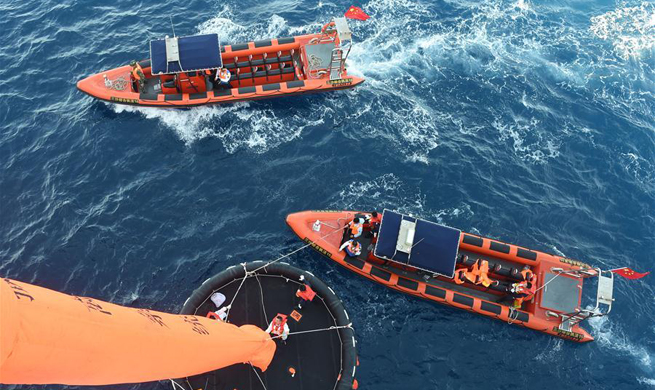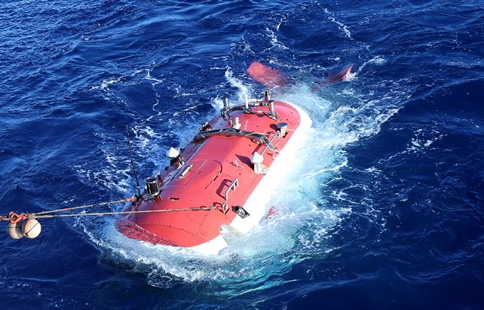SAN FRANCISCO, June 10 (Xinhua) -- A new survey found that residents in the U.S. Pacific northwest state of Washington, who believe climate change is a problem and see economic, environmental and/or social benefits to using tidal energy, are more likely to support such projects.
Puget Sound, along the northwestern coast, is one of the best places in the United States to capture energy from tides. As water in Sound rises and falls twice daily at high and low tide, strong underwater currents move swiftly in the narrow regions among islands and peninsulas.
Those currents at the inlet of the Pacific Ocean are what developers were eyeing when they proposed the first Pacific Northwest tidal energy pilot project in Admiralty Inlet, between the Olympic Peninsula and Whidbey Island. Though U.S. federal permits were issued, the project failed to launch in 2014 due to ballooning costs.
A University of Washington (UW) paper published recently in the journal Energy Research and Social Science examined Washington residents' perceptions and support of tidal energy, a fledgling industry in the United States that is perhaps 20 years behind land-based wind energy, finding that Washington residents support tidal energy, but to a greater degree if they live close to Puget Sound.
The researchers mailed a survey to 3,000 Washington residents, split equally among people who lived within 15 miles, or 24 kilometers, of the Puget Sound shore and those who lived elsewhere in the state. This was to measure whether proximity to the water influenced how people felt about tidal energy.
The authors claimed that the study is one of only a few worldwide to take a social science approach to examining tidal energy industry that affects people in personal ways.
"We can focus on the technical and economic feasibility of tidal energy projects, but really at the early stages we also want to bring social science in because we shouldn't look at these things in a vacuum or silo," said lead author Stacia Dreyer, a postdoctoral researcher at the UW's School of Marine and Environmental Affairs.
The respondents to the survey were also asked about their support during all phases of a hypothetical tidal energy project. Results showed that they support tidal energy to a greater degree during the research and development phase in the lab, but once the turbines move outside of the lab and into the water, that support drops. And, residents are much more likely to support a small-scale pilot project if the turbines are connected to the grid and benefiting the local community.
"If you are going to have a pilot project, it's really important that it's grid-connected, and producing electricity and powering homes or businesses," Dreyer was quoted as saying in a news release from UW. "I think people want to know that a project is effective and that it's benefiting them -- one of those ways is to supply power."

















